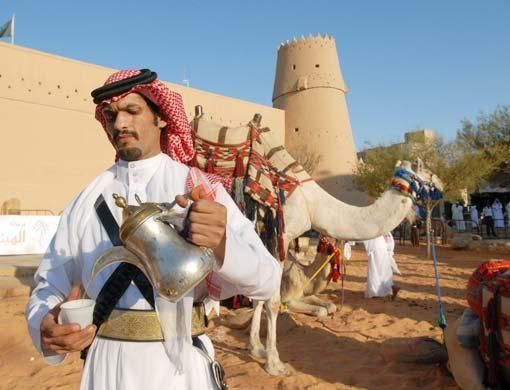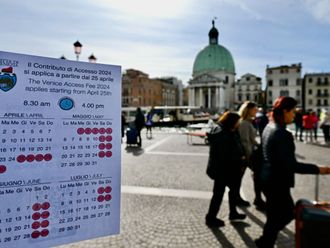Makkah: Saudi Arabia, the birthplace of Islam and home to its holiest shrines, hopes it can use its religious heritage to pull in not just pilgrims but tourists too, without compromising its way of life.
Officials are confident they can attract hundreds of thousands of high-end holidaymakers to visit the conservative Muslim country. And the holy city of Makkah, with its key Islamic sites and ancient markets, is central to the plan.
The Supreme Commission of Tourism (SCT) said earlier this year that tourist visas would be granted to foreigners for the first time. It licensed 18 tour operators to issue the visas, abolishing a long-standing requirement for a Saudi resident to sponsor those wishing to enter the country.
But the desert kingdom, where Islam is the writ of law, does not plan to water down the central role of religion in daily life or compromise its strict system of public morals, including a ban on alcohol.
Because the SCT wants tourists to remember their visits, the interior ministry has ended a ban on photography with the declared goal of attracting more visitors.
But make no mistake: alcohol will remain banned, women will have to cover from head to toe and Muslims alone can set foot in the Islamic holy cities of Makkah and Medina.
"We are shooting for high-end individuals, there won't be any mass tourism here. We target people who like Saudi Arabia for what it is, people who will like the experience and hopefully come back again and again," said SCT spokesman Majid Al Shiddi
.
The tourism drive comes as the world's top oil producer seeks to diversify its economy and find jobs for a rapidly growing population of 17 million Saudis.
"We have a lot to offer non-Muslim tourists. Scuba-diving, a diversified landscape, the hospitality and historic sites. There are more than 6,300 heritage sites," Shiddi told Reuters.
Officials expect Makkah, where millions of worshippers gather each year during the haj season, to remain the most visited city, followed by Medina. But authorities will now try to show tourists the rest of the country too.
"Makkah and Medina will be a must stopover for Muslim tourists," Shiddi said. "But there are many pilgrims who do not visit other cities in the kingdom. If we manage to get high-end pilgrims to visit other cities that would be great."
Already, work is underway to make sure that when visitors do arrive they have somewhere to stay, places to shop and ways of getting around. And Makkah is at the heart of this drive.
Real estate developers say the holy city accounts for more than half of total investments in the kingdom.
TARGET
1.5m visitors sought
With oil receipts at record levels, Saudi Arabia can afford to take it slow. It hopes to lure 1.5 million tourists by 2020 - compared to less than 100,000 foreign tourists who are not pilgrims today - and to see a rise from 5 to 18 per cent in tourism's contribution to its economy.













